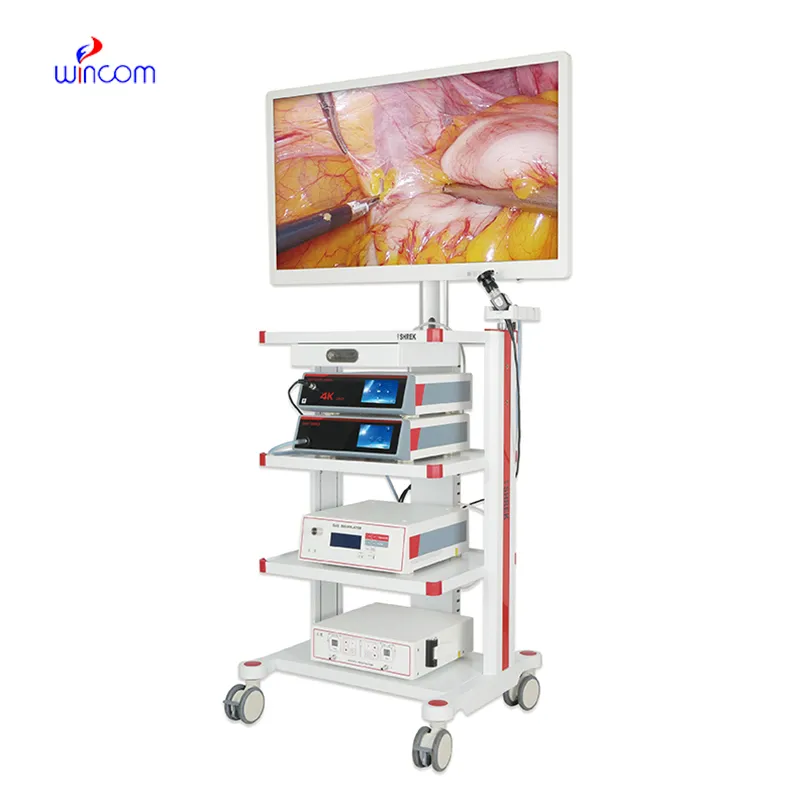
Developed from the use of sophisticated superconducting magnets, the mri machine for claustrophobia produces stable magnetic fields that create clear and unblurred images. Patient comfort during scanning is provided with noise reduction systems in the mri machine for claustrophobia. Automated positioning and high-speed data acquisition functions are included in the mri machine for claustrophobia to provide an effective workflow in clinical settings.

The mri machine for claustrophobia is a highly effective instrument for imaging the cardiovascular system, allowing precise evaluation of heart chambers, valves, and vessels. It makes it possible to detect disorders such as coronary artery disease, congenital heart disease, and myocardial inflammation. The mri machine for claustrophobia also measures blood flow and cardiac function precisely.

The mri machine for claustrophobia will be enhanced by quantum sensor technology and high-temperature superconducting magnets to generate more intense but more stable magnetic fields. This will allow imaging more quickly and with less energy. The mri machine for claustrophobia will also have more functional imaging capability for the investigation of brain connectivity and metabolic processes.

The mri machine for claustrophobia should be kept in a controlled environment to prevent overheating and condensation. Inspection of filters, ventilation systems, and electrical grounding is necessary from time to time. The mri machine for claustrophobia should be tested for performance to ensure signal strength, image resolution, and alignment accuracy.
The mri machine for claustrophobia is the most sophisticated diagnostic imaging technology, forming high-definition images with precise cross-sections of the body. It enables physicians to scan deep tissue structures without jeopardizing it. The mri machine for claustrophobia is extensively used in neurology, cardiology, and musculoskeletal medicine.
Q: What should patients avoid before an MRI scan? A: Patients should avoid wearing metal objects, such as jewelry, watches, or hairpins, as these can interfere with the MRI machine's magnetic field. Q: How does MRI help in brain imaging? A: MRI provides detailed views of brain structures, helping detect conditions such as tumors, aneurysms, multiple sclerosis, and stroke-related damage. Q: Can MRI scans be performed on children? A: Yes, MRI is safe for children since it doesn’t use radiation. In some cases, mild sedation may be used to help young patients remain still during scanning. Q: What is functional MRI (fMRI)? A: Functional MRI measures brain activity by detecting changes in blood flow, allowing researchers and doctors to study brain function and neural connectivity. Q: How are MRI images interpreted? A: Radiologists analyze the images produced by the MRI machine to identify abnormalities, tissue differences, or structural changes that are relevant to the diagnosis.
I’ve used several microscopes before, but this one stands out for its sturdy design and smooth magnification control.
The microscope delivers incredibly sharp images and precise focusing. It’s perfect for both professional lab work and educational use.
To protect the privacy of our buyers, only public service email domains like Gmail, Yahoo, and MSN will be displayed. Additionally, only a limited portion of the inquiry content will be shown.
We are planning to upgrade our imaging department and would like more information on your mri machin...
We’re looking for a reliable centrifuge for clinical testing. Can you share the technical specific...
E-mail: [email protected]
Tel: +86-731-84176622
+86-731-84136655
Address: Rm.1507,Xinsancheng Plaza. No.58, Renmin Road(E),Changsha,Hunan,China